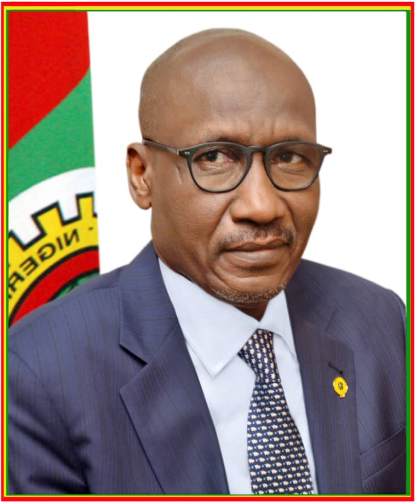According to Chief Timipre Sylva, Minister of State for Petroleum Resources, the Nigerian National Petroleum Company Limited is selling Premium Motor Spirit—also known as gasoline—at a loss as a result of the mandate it received from the Federal Government regarding the PMS subsidy.
Oil marketers said that the supply issues in the downstream oil sector that frequently cause fuel shortages might last until June due to the government’s plan to end the subsidy for gasoline in that month. Sylva made these remarks at the same time.
At the resumption of the scorecard series (2015-2023) of the President, Major General Muhammadu Buhari (retd.), the petroleum minister gave a speech in Abuja.
According to Zainab Ahmed, Minister of Finance, Budget, and National Planning, the Federal Government had budgeted approximately N3.6 trillion for fuel subsidy through June 2023.
While giving a speech on Monday in Abuja, Sylva insisted that the subsidy had been a burden, but he also stressed that NNPC’s mandate had caused the oil company to continue selling PMS at a loss.
He stated, “Under this subsidy regime, the management of the supply situation is not easy.” We can all agree that our cars are wasting so much money, but we have to pay for keeping the country wet in some way.
“If you really give it some thought, you might start to wonder how we manage to consistently keep this country wet. Considering that you intend to sell something at a loss and purchase it for N10
After that, you are expected to purchase the same item again and then sell it for a loss. Because you are required to sell it at a loss, you are constantly seeking additional funds to continue buying it.
“So if you are a businessman, look at it from this perspective, that you are now in the business where you are mandated to sell at a loss to the public,” Sylva continued. I have to tell you, that is not an easy job.
When asked how he would feel about purchasing gasoline at N300 per liter, Sylva responded that he would not feel bad about it.
“Knowing the actual situation, if you ask me how I will feel as a private citizen if I purchase gasoline at N300 per liter, sadly, I will say that I won’t feel bad. And you’ll understand if you compare Nigeria to other countries,” he said.
The minister continued, “You will understand when you convert the N300/litre that you are talking about to other currencies.” How much do you spend on petroleum products in the United Kingdom or the United States, where many of you travel? Even in crude oil-producing Arab communities.”
Although he stated that the commodity’s price in Nigeria was lower than in other nations, he emphasized that the current national consensus was that fuel subsidies could no longer be sustained.
Unfortunately, as everyone is aware, we are still operating under a subsidised regime. Sylva stated, “I think there is now a national consensus that subsidy is not sustainable as a country, but together we will get there.”
He asserted that investors would continue to avoid investing in the downstream oil sector until the market determined the cost of petroleum products.
Who will invest under a regime that provides subsidies? How will a refinery profit in a subsidised environment if you construct one? However, if the situation is driven by the market, numerous investors will arrive.
Sylva said, “And the more refineries we have, the problem of access to petroleum products will be gone.”
FG and Dangote Related News 13 A’Ibom fuel stations have been closed due to an increase in pump prices Scarcity: Private depots are boycotted by fuel marketers Scarcity: The Federal Government announced on Monday that it had acquired shares in four refineries operating in a variety of locations across the nation. The FG plans to inspect the tanks of fuel stations.
It described the refineries, which included the integrated 650,000-barrel-per-day Dangote Refinery in Lagos; Bayelsa’s Azikel Modular Refinery produces 12,000 bpd; Imo’s 5,000 BPD Waltersmith Modular Refinery; and an Edo-based 2,500 bpd Duport Modular Refinery.
In addition, the government stressed that the facility had been completed, and that the 60,000 bpd portion of the Port Harcourt Refining Company in Rivers State would begin operations in the first quarter of this year.
This was made public in Abuja at the ministerial scorecard series of the current administration by Chief Timipre Sylva, the Minister of State for Petroleum Resources, and Mele Kyari, the Group Chief Executive Officer of the Nigerian National Petroleum Company Limited.
Sylva stated that the Federal Government’s equity in Dangote Refinery was 20%, and that the government had also purchased shares in three other refineries.
He stated, “We have taken 20% equity in Azikel Refinery and 20 percent equity in Dangote Refinery.” We invested thirty percent in Waltersmith and thirty percent in Duport Refinery.
“The Duport Refinery is finished. The construction is finished. Only the beginning of operations remains. Duport Refinery will undoubtedly also begin operations within the next month or so.
The minister explained that the Dangote Refinery already had a contract with NNPC for the supply of crude oil. However, he also mentioned that some modular refineries typically got their crude oil from assets that were closer to the plants.
He explained, “So they (modular refineries) have this contract with private sector owners of these assets that are near them” for crude oil supply.
PH refinery In relation to the rehabilitation of the Port Harcourt Refinery, the minister stated that the target date for the plant’s beginning of operations had been moved to the first quarter of this year.
He stated, “I announced last year, and from the beginning, we have been saying the same thing; we did not say that we would complete the rehabilitation of the two refineries in Port Harcourt by May of this year.”
“Our promise has been that the 60,000 barrels per day refinery within the Port Harcourt refinery will be restored by the end of the fourth quarter of 2022,” the statement reads.
After that, Sylva asked Kyari to speak about the progress that the NNPC had made in restoring the refinery in Port Harcourt.
Kyari replied, “The refinery’s total rehabilitation will take 42 months from the date the contract was awarded.” We proceed with the rehabilitation in stages, as is typical of any refinery.
“And our promise is to start the fuel plant, which is a component of this activity that produces 60,000 barrels per day, by the last quarter of 2022, but this is not possible. However, we will begin operating it in the first quarter of 2023. Otherwise, each and every other procedure continues.
Sylva stated, “In other words, what he is saying is that the rehabilitation of the 60,000 barrels per day refinery has been completed and is going to be started in first quarter of 2023 as promised,” in response to the NNPC boss’s remarks.


